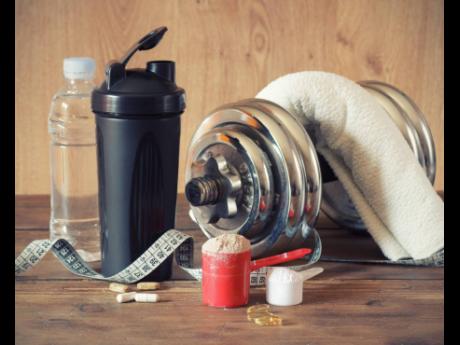Check-Up: What does he need to do to gain weight?
Dear Readers,
Benjamin is 28 and emails Check Up for advice on how to gain weight, for he says that all his life he’s had to deal with being skinny.
There are many people who consider themselves to be underweight because they just don’t have the required body image.
Some people actually have a BMI (body mass index) of less than 18, in which case they are medically thought to be below a healthy weight.
Low weight can also be linked to several health problems. Whether you’re truly underweight or just want to be bigger, bulkier and more muscular, the route to gaining weight and keeping it on will involve eating much more.
But first, it’s important to make sure that there’s no medical illness which is affecting weight gain or even causing weight loss.
Some of these conditions include:
n An overactive thyroid gland.
n Developing diabetes mellitus
n Eating disorders, such as anorexia nervosa.
n Unknown infections such as HIV/AIDS, tuberculosis, or bowel overload with parasites (worms).
n Unsuspected cancer (cancerous tumours burn a lot of calories as they develop).
Before starting on a weight-gain programme, a full check-up with your family doctor is advised to rule out any chronic medical conditions.
However, gaining weight is not about eating more fried foods and mass-produced junk meals.
The aim is to gain more muscle mass and subcutaneous fat rather than belly fat, which is associated with hypertension, diabetes and heart disease.
It is important to eat mostly healthy foods and have a workout programme with weights while you seek to gain weight.
The most important and irrefutable fact is that to gain weight, you’ll have to ingest surplus calories.
And you’ll permanently need to ingest more calories than you do presently to maintain the body weight, or at least do this until ageing alters your body’s hormonal make-up and metabolic functions.
The aim is to eat between 300 and 500 calories daily in excess of what your body needs.
This amount of calories will usually enable a slow and steady weight gain.
To gain weight more quickly, you would need to increase daily caloric intake to between 700 and 1,000 calories above maintenance levels.
It is most important to increase your protein portions over fats and carbs as you don’t want to gain too much fat.
To gain ‘muscle weight’, try to ingest one gram of protein per pound of body weight.
Add sauces, gravies and spices to meals to improve both the taste and calorie content, and to help facilitate eating more.
High-protein foods include eggs, fish, chicken, beef, legumes, nuts and dairy products.
It is also important to eat some complex carbohydrates, and even fat, to achieve a balanced diet and the amount of calories needed daily.
Just choose high-quality carbs and fats like sweet potatoes and olive oil.
Eat three meals a day and snack on high-calorie snacks in between meals. For meals and snacks include:
n Nuts like almonds and cashews.
n Dried fruit like raisins.
n High-fat dairy like ice cream.
n Fats like avocado pear.
n Grains like brown rice.
n Tubers like sweet potatoes.
n Meats like fatty cuts of beef.
Also, use peanut butter, granola and various trail mixes. Adding coconut milk to your cooking will also increase the caloric content.
Include some vegetables also, but just a little. Choose fruits like ripe bananas to eat!
It is also important to participate in some weight training to ensure that most of the weight gained goes to building muscles and not to unhealthy abdominal fat.
Some healthy tips to aid in a weight-gain programme are:
n Don’t drink before you eat.
n Eat and snack often.
n Drink whole milk instead to quench thirst.
n Drink high-protein shakes/weight-gainer shakes.
n Eat proteins first and vegetables last.
n Get good sleep.
n Don’t smoke, as smoking will cut your appetite.
Write Check Up: PO Box 1731, Kgn 8. Email: arnaj56@gmail.com






































